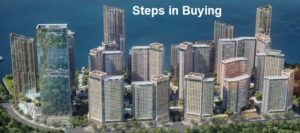When buying a condominium unit in the Philippines, there are several fees and taxes that you need to consider. These charges can vary based on the property’s location, the developer, and the specific terms of the sale. Here’s a general overview of the fees and taxes associated with purchasing a condo in the Philippines:
- Selling Price: This is the actual cost of the condominium unit. It’s essential to carefully review the total selling price, as many of the fees and taxes will be calculated based on this amount.
- Reservation Fee: A reservation fee is paid upfront to secure the unit and take it off the market. This fee is usually deductible from the total selling price.
- Down Payment: Most developers require a down payment, which is a percentage of the total selling price. The down payment is paid in installments over a specific period.
- Value Added Tax (VAT): If the seller is VAT-registered and the unit is considered a VATable sale, a 12% VAT is added to the selling price. Make sure to clarify with the developer whether the unit price is inclusive or exclusive of VAT.
- Documentary Stamp Tax (DST): DST is a tax on documents, including the Deed of Sale. It is generally 1.5% of the selling price or fair market value, whichever is higher. Both the buyer and the seller can be held liable for this tax.
- Transfer Tax: Transfer tax is imposed by the local government unit (LGU) where the property is located. The rate varies depending on the LGU and is usually a percentage of the property’s selling price or fair market value. Both the buyer and the seller can be held liable for this tax.
- Registration Fees: These fees cover the cost of registering the property in your name with the Register of Deeds. The amount varies based on the property’s value.
- Legal and Documentation Fees: You may need to pay for legal services and document processing, including the drafting and notarization of legal documents.
- Homeowners Association Fees: If the condominium complex has a homeowners association, you’ll likely have to pay membership fees and other dues for the maintenance of common areas and facilities.
It’s crucial to carefully review the terms and conditions in the Contract to Sell provided by the developer. Additionally, consult with a real estate lawyer or a knowledgeable real estate professional in the Philippines to understand all the applicable fees and taxes specific to your condo purchase.
If you engage the services of a real estate broker to help you find and purchase a condominium unit, you’ll need to consider their commission fee as part of the overall costs. In the Philippines, the standard real estate broker’s fee is typically 5% of the selling price. Here’s how it would factor into your expenses:
- Selling Price: PHP X (the total cost of the condominium unit)
- Real Estate Broker’s Fee: 5% of X
- Total Cost Including Broker’s Fee: X + 5% of X
For example, if the selling price of the condominium unit is PHP 2,000,000, the calculation would be as follows:
- Selling Price: PHP 2,000,000
- Real Estate Broker’s Fee: 5% of PHP 2,000,000 = PHP 100,000
- Total Cost Including Broker’s Fee: PHP 2,000,000 + PHP 100,000 = PHP 2,100,000
So, the total amount you would need to pay, including the broker’s fee, would be PHP 2,100,000 in this example.
It’s important to clarify with the real estate broker whether the commission fee is already included in the selling price or if it’s an additional cost. Always review the terms of the agreement with the broker before proceeding with the purchase to avoid any misunderstandings regarding fees and payments.
